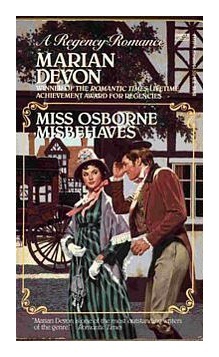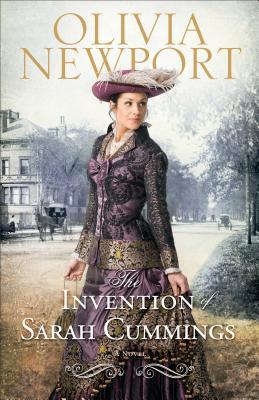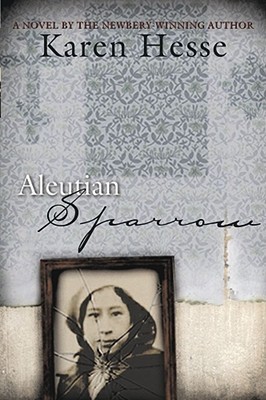What I've Read Recently. . .
Mrs. Jeffries Sweeps the Chimney by Emily Brightwell -- Victorian Mystery
Inspector Witherspoon's staff and friends are eager for another murder to solve. Wiggins is called away unexpectedly to meet his estranged grandfather who is on death's doorstep. Wiggins doesn't want to forgive the man who callously neglected his family but Mrs. Goodge encourages the lad to make peace with his family. Wiggins goes with the promise that Mrs. Jeffries will send a telegram if they get another murder. Constable Barnes arrives early one morning to inform Inspector Witherspoon they have a case. A clergyman has been found dead on the doorstep of St. Paul's church near the docks. Who is the man and why was he murdered? The dead man leaves a clue leading to a condemned cottage where Inspector Witherspoon and Constable Barnes discover a skeleton in the chimney. The skeleton was a woman between 15-35 years old but no one seems to know who she was for the cottage has been unoccupied for over ten years. Mrs. Jeffries, Smythe, Betsy, Mrs. Goodge, Luty and Hatchet are on the case. As much as it pains him, Smythe has to pay for information once again. Luty's connections reveal much about the dead clergyman but how to get the information to the Inspector? The staff must trust someone else with their valuable information and risk being exposed. Will this be the end of their investigating? I figured out who the dead woman was as soon as the clue appeared. I guessed wrong, actually, but I was on the right track. I would think that Mrs. Jeffries would have thought of the same thing because something similar happened on a previous case. The whodunnit wasn't much of a surprise but the ending was quite surprising and very abrupt. The secondary plot with Wiggins also doesn't come to much of a close. I turned the page thinking there was more but ... nothing. I would have liked one more page to conclude the story. I liked the interaction between the staff and Constable Barnes. He's a shrewd man and more clever than Inspector Witherspoon. There's not much else going on in this story. It's not even an original plot aside from the two mysteries. It kept me turning the pages to see how they figured it out and what happened but it's not super interesting. I still plan to read the rest of the series because I find nice, fluffy books diverting and I have nothing else to do right now.
Mrs. Jeffries Takes the Cake
Mr. Ashbury was murdered in his own home and since his son-in-law is an M.P., Inspector Witherspoon must handle the case and solve it before it becomes a scandal. Mr. Ashbury was found in his study with tea laid for two. Was Mr. Ashbury murdered by someone he knew? was it the killer who left walnuts on his plate? It seems that everyone has a reason for wanting Mr. Ashbury dead including his own daughter. She loathes her husband and longs for escape but her father refused to help her. Mr. Ashbury was last seen having words with his son-in-law. The more Inspector Witherspooon investigates, the more tangled the case becomes. No one seems to have witnessed the crime or even heard the shot, except for the footman perhaps but he's gone missing! Never fear, with Mrs. Witherspoon and the rest, the case will be solved. I thought I had this case all figured out twice but ended up being completely wrong. I did figure out one clue though. Mrs. Goodge should have come up with her big idea to begin with and saved a lot of trouble. This story was a bit violent. There's mention of wife beating which I found distasteful. The men in the story are all really nasty which I didn't like. In the course of the investigation, women's rights becomes an issue. That's all the period detail there is. There's a bit more romance between the Inspector and Lady Cannonberry. It's very sweet and cute. If you like this series, you'll like this book. I wouldn't recommend it to those who are especially sensitive to violence because of the aforementioned wife beating.
Mrs. Jeffries and the Silent Knight
When Sir George Braxton is found facedown in a pond of ice with a wound on the back of his head, Inspector Witherspoon is called in. Despite the fact the murder happened in Richmond, the Home Office is involved and wants a professional on the job. The HO is putting pressure on Witherspoon to solve the case before Christmas - that's one week away! As is often the case, Sir Braxton was a wealthy miser who was despised by his own family. The only thing Sir Braxton loved more than money was his cat Samson, who went missing only to return the night of the murder. No one in the house will admit to killing Sir Braxton yet someone must have done it. Murders don't happen every day in Richmond let alone in the middle of winter. Was it one of the daughters? The middle daughter has secrets and the youngest is in charge of the family finances. There's also two house guests, a poor relation and a gardener as suspects. Any other copper would assume the gardener did it and not investigate properly, but not Inspector Witherspoon! With Luty sick and Lady Cannonberry out of town, the servants are short some valuable connections. Inspector Witherspoon and Constable Barnes are largely on their own for this one. They also have to put their trust in Constable Barnes again and hope he understands how to help their beloved Inspector. The plot of this story is so predictable. I figured it all out right from the first chapter, however, as a reader, I had access to information that no one bothered to tell the Inspector. That's sloppy writing on behalf of the author. She shouldn't have put in the murder scene. It makes the mystery too predictable. The other suspects could have done it but I was positive I was right and I was. I also thought they should have figured out how to trap the killer right away! There's a lot more period detail in this story since the victim was of the Quality. It's said he's a baronet and then a knight and then a baron but they are NOT all the same thing! What is he? The editor should have caught that and fixed it. I would have liked more period detail, watching the characters move around and listening to them talk to each other to get a feel for their daily lives. This story lacked a lot of the comic relief from Luty Belle and Hatchet. She is in the story in a few scenes but most of the discussion about her is somewhat sad. Betsy and Smythe are bickering again a bit over what to do about their living situation once they're married. One wonders if they ever WILL get married. There's a tiny bit of romance at the end of the story. As usual, it's very sweet. In the end it sounds as if one of the characters is the one chronicling the cases and writing the stories. That's a cute touch I could do without.
Mrs. Jeffries Sweeps the Chimney by Emily Brightwell -- Victorian Mystery
Inspector Witherspoon's staff and friends are eager for another murder to solve. Wiggins is called away unexpectedly to meet his estranged grandfather who is on death's doorstep. Wiggins doesn't want to forgive the man who callously neglected his family but Mrs. Goodge encourages the lad to make peace with his family. Wiggins goes with the promise that Mrs. Jeffries will send a telegram if they get another murder. Constable Barnes arrives early one morning to inform Inspector Witherspoon they have a case. A clergyman has been found dead on the doorstep of St. Paul's church near the docks. Who is the man and why was he murdered? The dead man leaves a clue leading to a condemned cottage where Inspector Witherspoon and Constable Barnes discover a skeleton in the chimney. The skeleton was a woman between 15-35 years old but no one seems to know who she was for the cottage has been unoccupied for over ten years. Mrs. Jeffries, Smythe, Betsy, Mrs. Goodge, Luty and Hatchet are on the case. As much as it pains him, Smythe has to pay for information once again. Luty's connections reveal much about the dead clergyman but how to get the information to the Inspector? The staff must trust someone else with their valuable information and risk being exposed. Will this be the end of their investigating? I figured out who the dead woman was as soon as the clue appeared. I guessed wrong, actually, but I was on the right track. I would think that Mrs. Jeffries would have thought of the same thing because something similar happened on a previous case. The whodunnit wasn't much of a surprise but the ending was quite surprising and very abrupt. The secondary plot with Wiggins also doesn't come to much of a close. I turned the page thinking there was more but ... nothing. I would have liked one more page to conclude the story. I liked the interaction between the staff and Constable Barnes. He's a shrewd man and more clever than Inspector Witherspoon. There's not much else going on in this story. It's not even an original plot aside from the two mysteries. It kept me turning the pages to see how they figured it out and what happened but it's not super interesting. I still plan to read the rest of the series because I find nice, fluffy books diverting and I have nothing else to do right now.
Mrs. Jeffries Takes the Cake
Mr. Ashbury was murdered in his own home and since his son-in-law is an M.P., Inspector Witherspoon must handle the case and solve it before it becomes a scandal. Mr. Ashbury was found in his study with tea laid for two. Was Mr. Ashbury murdered by someone he knew? was it the killer who left walnuts on his plate? It seems that everyone has a reason for wanting Mr. Ashbury dead including his own daughter. She loathes her husband and longs for escape but her father refused to help her. Mr. Ashbury was last seen having words with his son-in-law. The more Inspector Witherspooon investigates, the more tangled the case becomes. No one seems to have witnessed the crime or even heard the shot, except for the footman perhaps but he's gone missing! Never fear, with Mrs. Witherspoon and the rest, the case will be solved. I thought I had this case all figured out twice but ended up being completely wrong. I did figure out one clue though. Mrs. Goodge should have come up with her big idea to begin with and saved a lot of trouble. This story was a bit violent. There's mention of wife beating which I found distasteful. The men in the story are all really nasty which I didn't like. In the course of the investigation, women's rights becomes an issue. That's all the period detail there is. There's a bit more romance between the Inspector and Lady Cannonberry. It's very sweet and cute. If you like this series, you'll like this book. I wouldn't recommend it to those who are especially sensitive to violence because of the aforementioned wife beating.
Mrs. Jeffries and the Silent Knight
When Sir George Braxton is found facedown in a pond of ice with a wound on the back of his head, Inspector Witherspoon is called in. Despite the fact the murder happened in Richmond, the Home Office is involved and wants a professional on the job. The HO is putting pressure on Witherspoon to solve the case before Christmas - that's one week away! As is often the case, Sir Braxton was a wealthy miser who was despised by his own family. The only thing Sir Braxton loved more than money was his cat Samson, who went missing only to return the night of the murder. No one in the house will admit to killing Sir Braxton yet someone must have done it. Murders don't happen every day in Richmond let alone in the middle of winter. Was it one of the daughters? The middle daughter has secrets and the youngest is in charge of the family finances. There's also two house guests, a poor relation and a gardener as suspects. Any other copper would assume the gardener did it and not investigate properly, but not Inspector Witherspoon! With Luty sick and Lady Cannonberry out of town, the servants are short some valuable connections. Inspector Witherspoon and Constable Barnes are largely on their own for this one. They also have to put their trust in Constable Barnes again and hope he understands how to help their beloved Inspector. The plot of this story is so predictable. I figured it all out right from the first chapter, however, as a reader, I had access to information that no one bothered to tell the Inspector. That's sloppy writing on behalf of the author. She shouldn't have put in the murder scene. It makes the mystery too predictable. The other suspects could have done it but I was positive I was right and I was. I also thought they should have figured out how to trap the killer right away! There's a lot more period detail in this story since the victim was of the Quality. It's said he's a baronet and then a knight and then a baron but they are NOT all the same thing! What is he? The editor should have caught that and fixed it. I would have liked more period detail, watching the characters move around and listening to them talk to each other to get a feel for their daily lives. This story lacked a lot of the comic relief from Luty Belle and Hatchet. She is in the story in a few scenes but most of the discussion about her is somewhat sad. Betsy and Smythe are bickering again a bit over what to do about their living situation once they're married. One wonders if they ever WILL get married. There's a tiny bit of romance at the end of the story. As usual, it's very sweet. In the end it sounds as if one of the characters is the one chronicling the cases and writing the stories. That's a cute touch I could do without.









